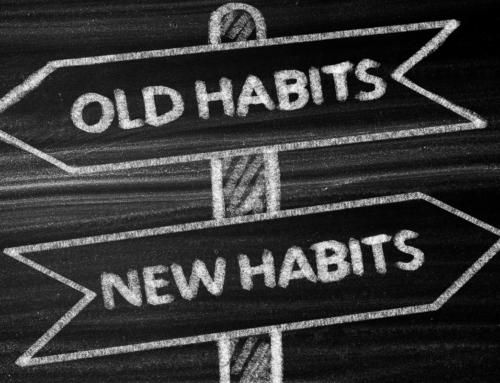Is this picture a sign that I have an off-kilter sense of humor? Perhaps…but it’s more likely simply an artifact of my current studies. This term in my Nutrition & Metabolism class it’s all lipids, all the time. So I’ve been doing a deep dive into subjects like high cholesterol, chronic inflammation, metabolic syndrome and yesterday, the wonderful world of atherosclerosis (a.k.a. hardening of the arteries).
It’s been brain-busting (you try describing in minute biochemical detail what your cells do when they need more cholesterol or what happens when you eat a high-carbohydrate meal after a 24-hour fast) but fascinating. And not just because I hope, as a future nutritionist and dietitian, to help people avoid or control health conditions like high cholesterol and heart disease. It’s because I want to avoid those problems myself! Heck, I don’t want to have a heart attack in my future, do you? Of course not.
I’ve known for a while that the idea that dietary cholesterol causes high blood cholesterol and cardiovascular disease had been debunked, but it was great to have that confirmed, in person, by experts in the field. Two weeks ago, we had Alan Chait, MD, head of the University of Washington’s Division of Metabolism, Endocrinology and Nutrition, give a guest lecture on metabolic syndrome. He said that there is not an association between dietary cholesterol and cardiovascular disease (CVD), but there is an association between saturated fat and CVD.
So, why do we still see recommendations from the American Heart Association (among other entities) to limit dietary cholesterol? Because most foods that are higher in cholesterol are also higher in saturated fat. They tend to come as a package deal. But you know what doesn’t? Eggs. Yes, eggs have cholesterol, but they don’t have much in the way of saturated fat. Poor, maligned eggs.
Why doesn’t cholesterol from food raise cholesterol in our bodies and lead to heart disease? Because it is extremely important for each of our cells to have the amount of cholesterol it need to work right…no more, no less. They’re kind of like Goldilocks that way…they want it just right. If you’re eating more cholesterol, your cells will make less. If you’re eating less, they’ll make what they need. It’s a multifaceted regulatory mechanism that is really quite exquisite. Our bodies are amazing things! Now, some people have genetic forms of high cholesterol, and do need to limit dietary cholesterol, but those cases are rare, and their levels would be so out of whack that a doctor would have told them what they have (at least I sure hope so).
So I’m still loving my eggs, but I’m doing a deep rethink about saturated fat after what I’ve learned in the last few weeks. As in limiting it. But I’m going to save that for tomorrow’s post.







